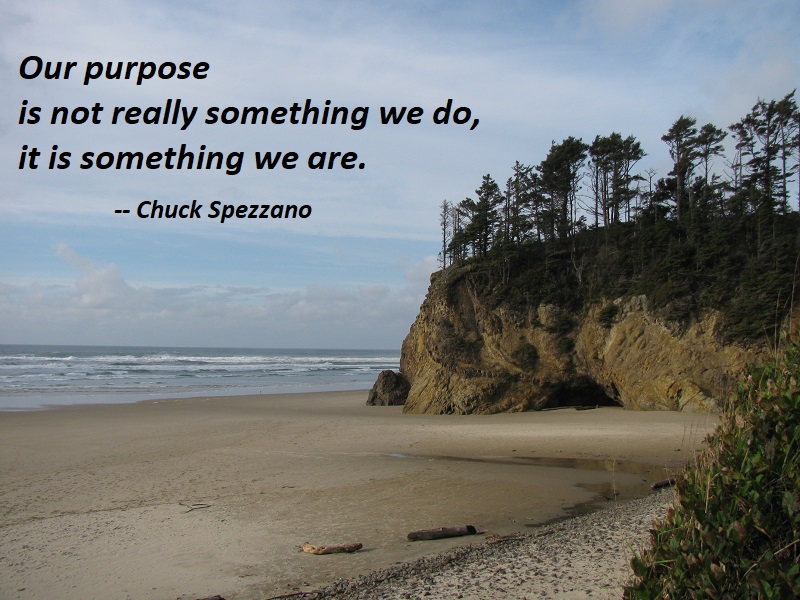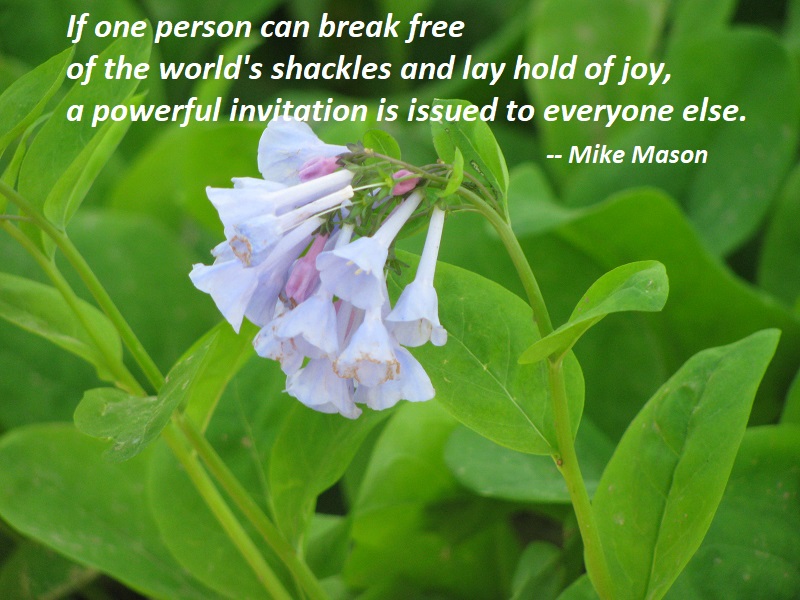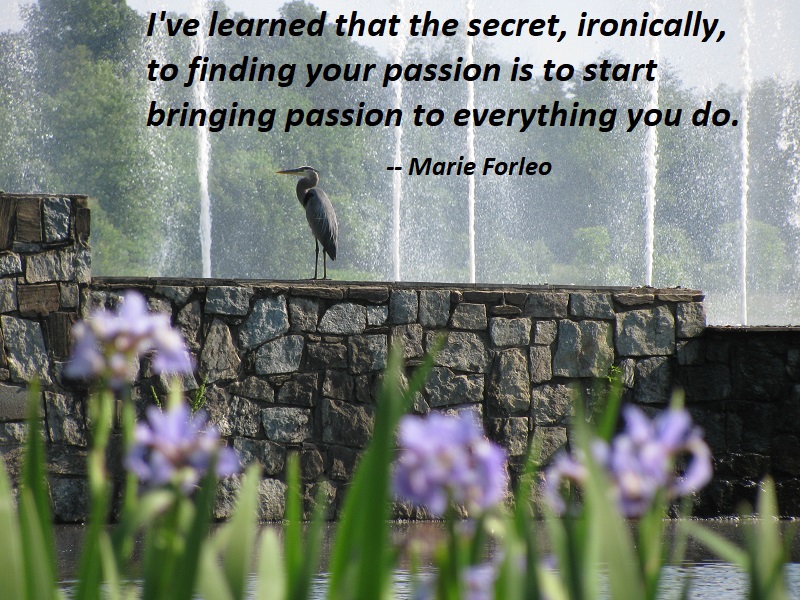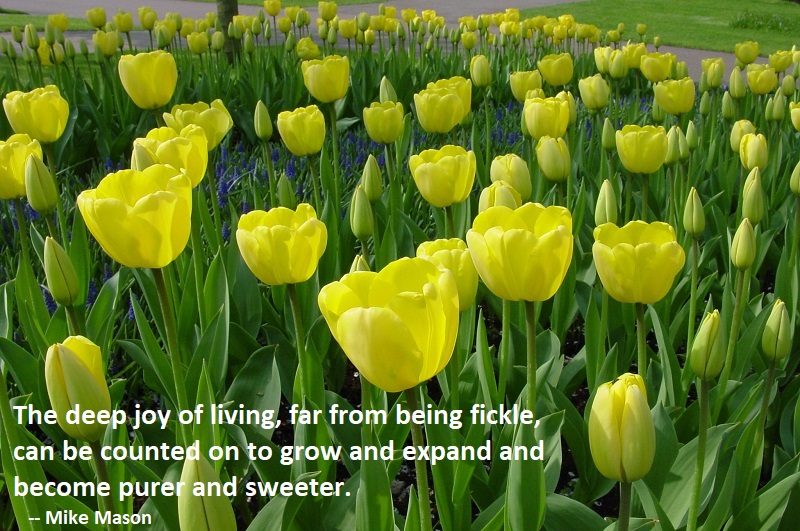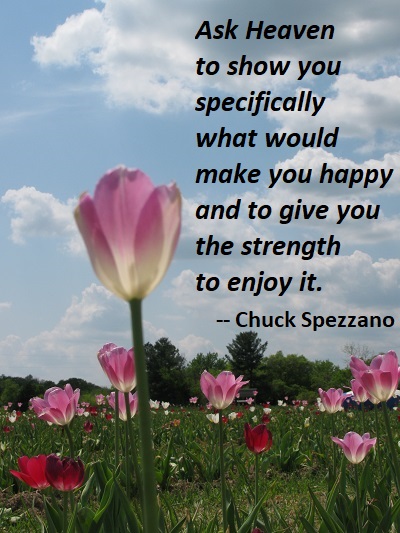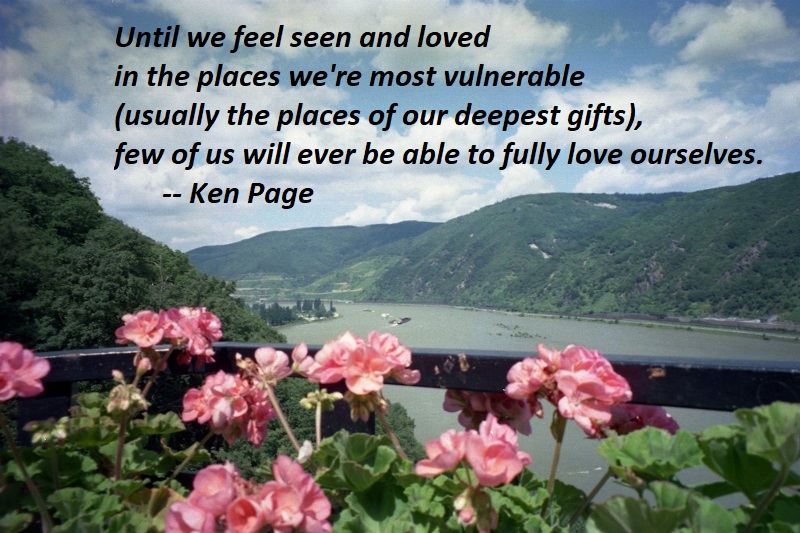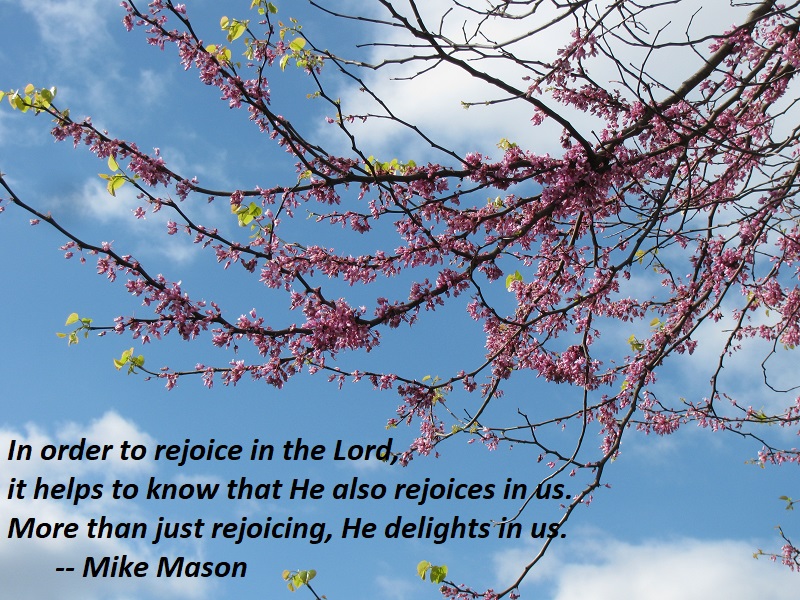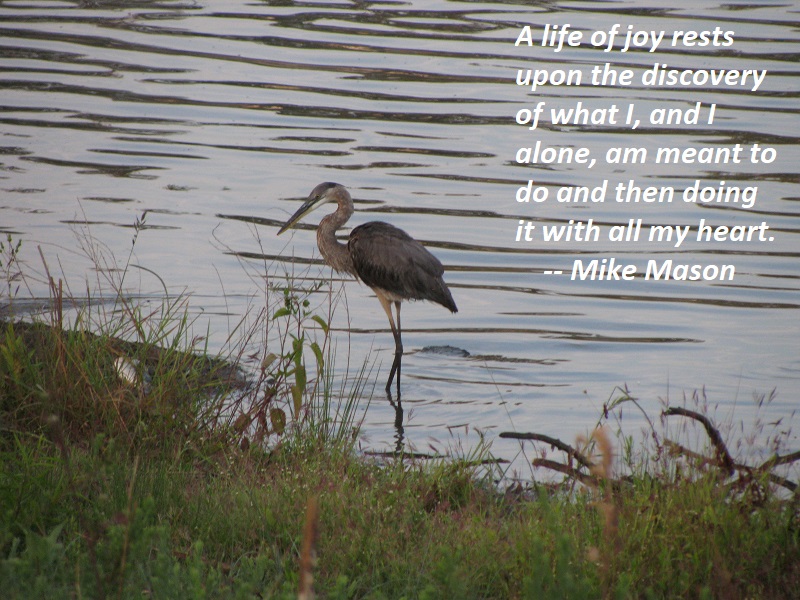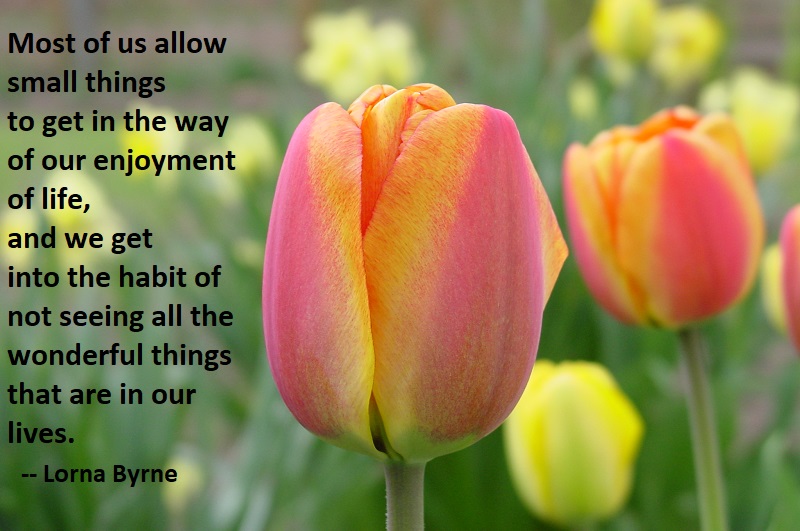
Very few of us love life enough… Most of us allow small things to get in the way of our enjoyment of life, and we get into the habit of not seeing all the wonderful things that are in our lives. I see this bad habit start at a very early age. When I see a young child who is not getting their own way, I will sometimes see them suck in the love-of-life energy. It doesn’t normally last long with a young child, though, and within a few minutes I will see this energy burst forth again.
As an adult, if we are not used to letting this energy burst forth, it may take us a little longer to remember how to do it. The more conscious you become of loving life, the more you build up this energy, which helps you physically and mentally.
It is important to bring love of life to the work you are doing, whatever it is. You don’t have to love the job — it may be far short of what you aspire to — but when you approach it with love of life, you will be able to enjoy it, do a good job, and make the best of any opportunities it brings.
— Lorna Byrne, Love from Heaven, p. 110-111
[Photo: Keukenhof, Holland, April 17, 2004]
